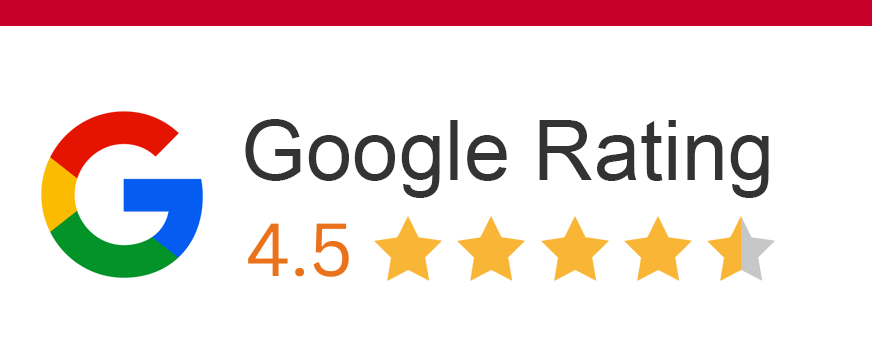As we are inching towards a global financial crunch, the Chancellor is not leaving any stone unturned. Sunak’s latest announcement to help small and medium-sized businesses will be beneficial? Or the government needs to take more measure to delay the recession that we all are expecting? ⭐COVID-19 ⭐Finance Industry
Even with the implementation of Social distancing laws and lockdowns, the number of people infected by the deadly Coronavirus are increasing exponentially, worldwide. Currently, over 190K people in the UK are confirmed to have been suffering from Covid-19. The pandemic is not only claiming lives, but is also swallowing the livelihood of people, leaving them either unemployed or out of business. The UK government is leaving no stone unturned in providing people with the necessary aid that they need to fight this pandemic.
The recent announcement of the ‘Bounce Back Loan’, serves as exhibit A for the above statement. Within this scheme, lenders are encouraged to lend 100% government-backed loans of up to £50,000 to small enterprises. This scheme is for lenders covered by the Coronavirus Business Interruption Loan Scheme (CBILS), wherein the cap on interest rate is 2.5%. While the government is trying to cater to the needs of each segment, we want to shed some light on how small businesses were suffering due to the pandemic.
Maximise your options: Compare and apply for loans below with LoanTube
Apply Filters

Loan Amount
£4000 -
£20000
Norwich Trust
Loan Term
1 -
10 years
4.8/5
Representative APR
22.9%
Minimum Age
21 Years
Representative Example If you borrow £20000 over 72 months, your representative APR will be 22.90% APR. Your monthly repayments will be £488.36 and the total amount repayable will be £35,161.92.

4.8/5
Norwich Trust
Loan Amount
£4000 -
£20000
Loan Term
1 -
10 years
Representative APR
22.9%
Minimum Age
21 Years
Minimum Income
£2000 per month
Representative Example If you borrow £20000 over 72 months, your representative APR will be 22.90% APR. Your monthly repayments will be £488.36 and the total amount repayable will be £35,161.92.

Loan Amount
£5000 -
£100000
Evolution Money Loans
Loan Term
1 -
20 years
4.5/5
Representative APR
28.96%
Minimum Age
18 years
Representative Example: Loan Amount: £20950.00, Loan Term: 85 Months, Interest Rate: 23.00% PA Variable. Monthly Repayments: £537.44. Total Amount Repayable: £45,682.15. This example includes a Product Fee of £2,095.00 (10% of the loan amount) and a Lending Fee of £714.00

4.5/5
Evolution Money Loans
Loan Amount
£5000 -
£100000
Loan Term
1 -
20 years
Representative APR
28.96%
Minimum Age
18 years
Minimum Income
Not mentioned
Representative Example: Loan Amount: £20950.00, Loan Term: 85 Months, Interest Rate: 23.00% PA Variable. Monthly Repayments: £537.44. Total Amount Repayable: £45,682.15. This example includes a Product Fee of £2,095.00 (10% of the loan amount) and a Lending Fee of £714.00

Loan Amount
£1000 -
£10000
1Plus1 Guarantor Loans
Loan Term
1 -
5 years
4.4/5
Representative APR
47.80%
Minimum Age
18 years
Representative example: If you borrow £3000 over 36 months at a Representative rate of 47.8% APR and an annual interest rate of 39.7%, you would pay 12 monthly installments of £143.84. The total charge for credit will be £2178.24 and the total amount payable will be £5178.24.

4.4/5
1Plus1 Guarantor Loans
Loan Amount
£1000 -
£10000
Loan Term
1 -
5 years
Representative APR
47.80%
Minimum Age
18 years
Minimum Income
Not mentioned
Representative example: If you borrow £3000 over 36 months at a Representative rate of 47.8% APR and an annual interest rate of 39.7%, you would pay 12 monthly installments of £143.84. The total charge for credit will be £2178.24 and the total amount payable will be £5178.24.
How are Startups in the UK are Coping?
Nearly 82% of Small business owners are concerned about the severity of the impact of the outbreak. Over 35% of the SME owners in the UK feel that they’re underprepared to deal with the consequences. As trends suggest, larger enterprises (those employing more than 10 people), tend to be better prepared to the tackle the crisis, as opposed to smaller businesses. Where some are concerned about plummeting sales and disruption in the economy, there are SMEs whose day to day cash flow has taken a severe hit. As a result, 7% of the SMEs have already shut down, another 7% have withheld the rent. With so much ambiguity around the future of their business and the economy’s recovery, owners are left with very few options to stay afloat. Over 5% have made redundancies and 12% have been forced to temporarily shut down their business.
A number of SMEs affected by the pandemic are businesses that depend on direct consumer spending. Given the nature of the outbreak, this change in consumer behavior was inevitable. For SMEs or businesses with smaller cash reserves, surviving without regular income is implausible. A report by Vox suggests that ‘Accommodation and Food’ followed by ‘Leisure and Tourism’ industry have taken the biggest hit due to Coronavirus. However, with the announcement of the ‘Retail, Hospitality and Leisure grant fund’, the government attempted to ease the damage due to Covid-19.
What About other SMEs?
The government is making unprecedented attempts to minimise the loss incurred by the British economy. However, not everybody’s needs are fulfilled. With the initial announcement of the ‘emergency loan’, a number of business approaching banks for assistance were outright denied loans. This comes as a result of the discrepancies in the eligibility criteria set up by the government. For business which were eligible for these loans, a number of approved lenders charged an interest of up to 30%. To add to the misery, high street banks were levying an interest of 7% on emergency loans. Moreover, there was no promised date for the borrower to receive their money.
As per ‘The Guardian’, out of the 300,000 firms that reached out for help, of which only a fraction who formally filled out the loan application, got access to the money. Borrowers had no choice but to patiently wait for weeks before getting access to their survival money. It is especially difficult for SME owners with low savings. As they would need to cash in on their saving for survival, before they get access to the loan money.
How the UK Government is Helping the Businesses?
The ‘Bounce Back loan’ for Small and Medium-sized enterprises endeavors to overcome the limitations of the former Government initiatives. Under this plan, businesses are eligible for loans of £2,000 to £50,000, with faster access to their money. They can access these through easy online applications. These applications will enquire about basic information about the borrower’s business. Information such as annual turnover, bank account number, the amount of credit sought and the adversity of the impact of the outbreak on your business may be asked.
Unlike the ‘emergency loan’, lenders cannot ask for security or personal guarantee for this loan. For lenders, these loans are going be a 100% government-backed. This scheme was set into motion on May 4’ 2020, 9 am onwards. This scheme also allows people with an ongoing CBIL to switch to this new and affordable plan. The Government will also cover the cost of any fees and interest for the borrower for the first 12 months. No repayments will be due during this period until businesses regain firm ground.
How do Lenders Recover from a Default?
If a lender is unable to recover their money from a defaulter, they can reach out to British Business Bank. They will then help the lender activate the government guarantee. However, HMRC will scrutinize applications for Bounce Back Loans to prevent fraudulent borrowers from benefitting off the scheme. All firms qualifying for this scheme, will be subject to standard customer fraud, anti-money laundering (AML) and Know Your Customer (KYC) checks before lending. Some State Aid restrictions may apply to applications.
Catering to all segments of the economy is a tough nut to crack, despite the Government’s unparalleled and unbiased efforts. This scheme is an attempt to help small firms striving to get secured loans before their pockets bleed dry. The fact that the loan is interest-free for the initial year, and affordable for the rest of the term evokes a sense of security in SME owners. As the government extends its’ liability for loans to a 100%, there are hopes that banks would aid in fulfilling the increasing monetary demand. The economy may have taken a major blow. But efforts like these to help businesses sustain, will surely help in boosting employment.


